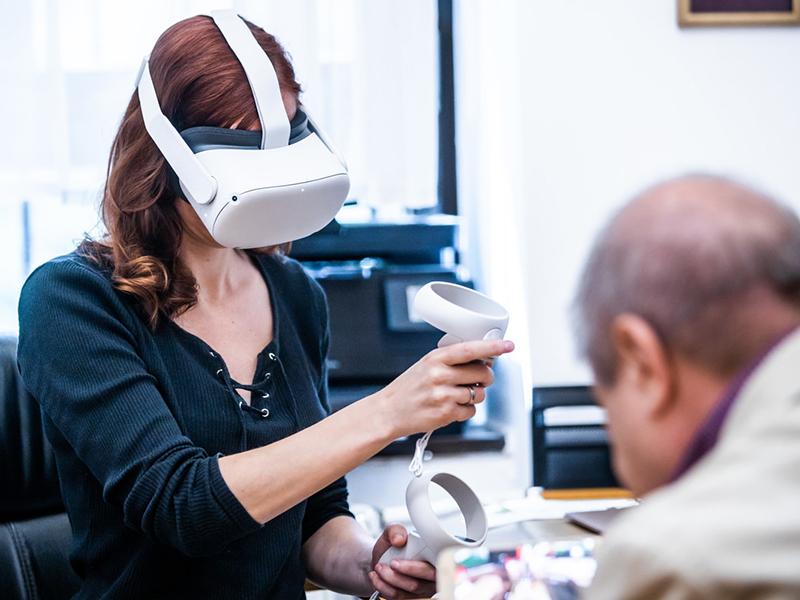
Yes, empathy can be taught – here’s how

You may also like
Is empathy innate?
Empathy is “something you have either got, or you haven’t”.
If true, these words from senior midwife and independent investigator Donna Ockenden could spell disaster for patient care.
Her own landmark investigation into the Shrewsbury and Telford Hospital NHS Trust revealed how devastating a lack of empathy can be, documenting case after case where emotional disconnection led to harm and distress.
The stakes couldn’t be higher. NHS ombudsman Bob Behrens points to a “deep-seated lack of empathy” in medicine as a likely cause of preventable deaths. In one heartbreaking case, a woman with smoking-related heart disease lost her life prematurely after refusing medical care, driven away by what she experienced as practitioners’ cold indifference. The verdict was clear: with more empathetic care, she might be alive today.
If empathy cannot be taught, the benefits of enhanced empathy will be harder to reap. When practitioners enhance their empathy skills, patients need less morphine. They leave hospital sooner. Their pain levels drop. Satisfaction soars. Most striking of all – among diabetic patients, mortality rates fall.
These aren’t soft outcomes; they’re hard clinical endpoints that save lives. Also, the benefits flow both ways: practitioners who develop greater empathy report increased well-being and a renewed sense of purpose in their calling to care for others.
If Ockenden is right, we’re stuck with the status quo where lack of empathy continues to harm patients, and its benefits cannot be realised.
Why people think empathy can’t be taught
“You can never truly feel what another person feels.” This common refrain leads many to dismiss empathy as unteachable. But it fundamentally misunderstands what therapeutic empathy means in healthcare. A nurse caring for a furious patient shouldn’t mirror that anger. A doctor treating someone experiencing intense grief doesn’t need to plunge into despair themselves. Clinical empathy is far more practical: it’s about curiosity, understanding and taking helpful action.
- Taking trust to the next level in healthcare assessment
- Science-backed mental health techniques for students’ well-being
- Why students and faculty alike need mental health first-aid training
Think of empathy like musical ability. Some people naturally carry a tune better than others. Women often display higher baseline empathy than men, shaped by both genetics and social conditioning, just as cultural exposure to music gives some children a head start. But believing that these starting points determine our destiny would be like telling a tone-deaf person they can never learn to sing. Just as a nervous novice can become a better singer, healthcare practitioners can develop stronger empathy through dedicated training.
Teaching empathy changes behaviour: the evidence is clear
Imagine a new drug that consistently improved patient outcomes across 26 separate clinical trials. Medical journals would trumpet the breakthrough. Guidelines would be rewritten overnight. Yet we have something equally powerful: empathy training for healthcare practitioners. Twenty-six randomised controlled trials show not only that empathy training changes practitioner behaviour, but that these new behaviours benefit patients and practitioners alike.
Best of all? This transformation doesn’t require years of intensive training. Take the BATHE method, an elegant five-step approach that guides practitioners through understanding a patient’s
- Background, exploring how they’re
- Affected emotionally, identifying what
- Troubles them most, learning
- How they’re coping, and responding with an
- Empathic message.
Simple, yet powerful enough to change the trajectory of care. In healthcare, we demand evidence before adopting new practices. With empathy training, that evidence is overwhelming. The question isn’t whether it we can teach it; it is why we aren’t teaching it more consistently.
Tips for teaching empathy (and a few easy skills to teach)
You need to know your audience and identify specific problems that are caused by lack of empathy in their setting. When I shifted from teaching general practitioners to midwives, I discovered that different contexts demand different examples. The key is to ground your teaching in evidence-based methods – not just because they work but because healthcare practitioners respect data. Show them the research, and you’ll transform sceptics into believers.
But here’s the secret: learning empathy shouldn’t feel like another box-ticking exercise in the endless parade of mandatory training. Make it come alive with quizzes, learning games and caption competitions. Let practitioners discover that enhancing their emotional intelligence can be energising rather than draining.
The beauty of empathy lies in how simple yet powerful its basic techniques can be. Three transformative practices take mere seconds:
1. Encourage practitioners to introduce themselves by name – creating an immediate human connection.
2. Have practitioners sit down beside the patient instead of standing up – a small gesture that patients perceive as giving them more time.
3. Encourage practitioners to provide a truthful, positive message of hope, even if it is just: “We are going to do our best to take care of you.”
If we discovered a drug that could ease pain, speed healing, boost practitioner well-being and save lives, we wouldn’t debate whether to use it, we’d make it standard practice. We have that breakthrough. It’s called empathy. We can teach it. We can measure it. And in a healthcare system under pressure, we must make it a cornerstone of medical education.
Jeremy Howick is director of the Stoneygate Centre for Empathic Healthcare at the University of Leicester.
If you would like advice and insight from academics and university staff delivered direct to your inbox each week, sign up for the Campus newsletter.


